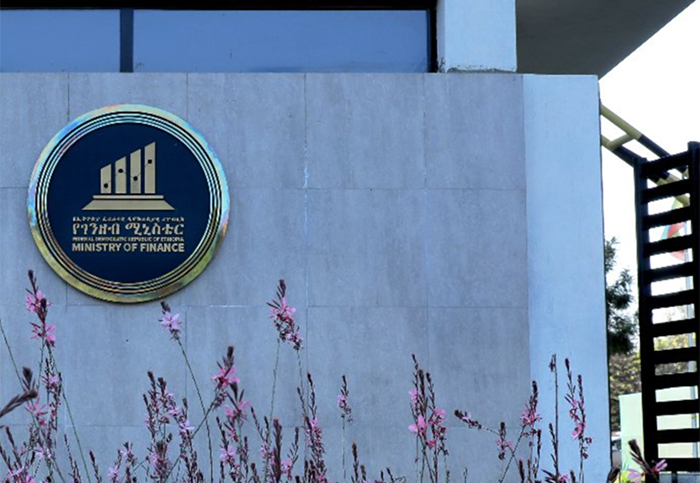
Addis International Bank (AdIB) has demonstrated considerable growth in assets, high-interest margins, and deposit growth during its operation in the fiscal year 2021/22. However, it lagged behind its competitors in profitability ratios, loan diversification, and digital transformation.
To maintain a competitive edge, experts urged AdIB's management to prioritize cost management, portfolio diversification, asset quality improvement, and digital innovation. The Bank faced challenges in achieving an industry-average return on equity, with experts highlighting the need for its executives to focus on several key areas to stay competitive in a challenging industry.
AdIB's total assets reached 10.7 billion Br, a year-on-year (YoY) growth rate of 21.6pc. Loans and advances grew by 34.3pc (YoY) to hit 6 billion Br, while deposits increased by 23.4pc (YoY) to 7.9 billion Br. The Bank generated a net interest income of 400.9 million Br and other income of 699 million Br.
Its profitability ratios, including earnings per share and return on assets and equity, were relatively low compared to other banks. This suggests that the Bank may have faced challenges in generating sufficient returns for its shareholders.
Although AdIB's financial performance was on par with the industry average, there is room for improvement in credit risk management for profitability and asset quality. Industry experts have urged AdIB's executives to concentrate on reducing operating expenses through better cost management, diversifying the loans portfolio, enhancing asset quality, increasing interest income through better management of interest-bearing liabilities, raising additional capital to support growth plans, and improving the capital adequacy ratio.
AdIB's return on assets (RoA) and return on equity (RoE) were 3.5pc and 18.2pc, respectively, higher than the industry averages of 2.9pc and 18.5pc. The Bank's three-year RoA of 2.31pc was lower than Abay Bank's 3.18pc and Zemen Bank's 2.77pc. However, its RoE of 17.4pc surpassed the industry average of 15.5pc and its peers, except for Berhan Bank's RoE of 20.1pc.
AdIB outperformed its peers, such as Enat and Debub Global banks, posting a net profit of 344.86 million Br, a 27.1pc increase from the previous year. However, the profit stands over two times lower than Abay Bank's 933.3 million Br.
The Bank's earnings per share (EPS) grew by three percentage points to 28.24pc, lower than the industry's average of 32.7pc. Awash Bank had the highest EPS of 57pc reported last year, followed by the Bank of Abyssinia with 56.8pc. Dashen Bank has the highest EPS of 58.3pc for the decade.
AdIB's quick ratio of 0.43 is lower than the industry average of 0.56, indicating potential difficulties in meeting short-term obligations. With a total asset increase of 21.6pc to 10.79 billion Br, AdIB falls short among its peers, such as Abay Bank (40.7 billion Br), Enat Bank (17.21 billion Br), and Debub Global Bank (14.08 billion Br).
Although AdIB's efficiency ratio was higher than the industry average, suggesting less efficiency in managing expenses, its cost-to-income ratio of 57.4pc was lower than the industry average of 63.9pc, indicating more efficient in generating revenue from its operations.
"Income growth was remarkable," said Abdulmenan Mohammed, a financial statement analyst from London Portobello Ltd. "The expenses require the attention of the management."
Hailu Alemu, AdIB's president, attributed the rising costs to increased rental fees, wage adjustments aimed at employee retention, and the upsurge in provisions due to non-performing loans disbursed in the Tigray Regional State.
Provisions for impairment of loan and other assets increased to 62.25 million Br, up from 17.35 million Br, accounting for 7.6pc of the total interest income. Expenses accompanying income growth included a 17.6pc increase in interest paid on deposits to 421.8 million Br, and personnel and general administration expenses increasing by 36.5pc to 313 million Br and 40.2pc to 245.5 million Br, respectively. AdIB has 1,060 employees, with an average monthly salary of 33,658 Br. Personnel expenses accounted for 43pc of total expenses, slightly below the industry average of 44.5pc.
Hailu, an accounting and economics graduate from Addis Abeba University, has been the founding president of AdIB since its incorporation in 2012. He joined the Bank after promoters successfully raised 109.4 million Br in equity from 5,309 shareholders, with savings and credit associations, Edir, and framer unions remaining the major shareholders.
Under Hailu's leadership, AiDB aggressively expanded its network, adding 21 new branches, pushing the total number to 112. This expansion was accompanied by fierce competition for skilled human capital, resource mobilization, and customer attraction.
Getachw Mandefro, a founding shareholder, expressed satisfaction with the bank's performance and improved dividends. He urged Hailu and the executives to focus on marketing and promotion for increased market visibility.
Experts, such as Abdulmenan, have recommended AdIB's executives deploy capital efficiently to improve shareholders' returns. The Bank had a paid-up capital of 1.44 billion Br, representing YoY growth rates of 13.6pc, and achieving a capital adequacy ratio (CAR) of 20.4pc, well above the industry's average of 17.7pc. Addis International Bank and Zemen Bank boast the industry's highest capital adequacy ratios, while Enat Bank and Debub Global Bank have the lowest.
During the shareholders' assembly held in December 2022 at the Millenium Hall, on Africa Avenue (Bole Road), Board Chairman Kassahun Bekele urged shareholders to buy more shares to increase the Bank's capital and benefit from its growth. Over 14,000 shareholders voted for the recapitalization of the Bank to reach five billion Birr, aiming to meet the minimum capital threshold required by the central bank within three years.
Yedneku Worku, a manager at the Shola Branch, has mixed feelings about last year's performance, marked by solid deposit mobilization and challenging share sales.
Customers provided AdIB 61.1pc of its resources in savings accounts, 33.1pc in checking accounts, and 5.8pc in time deposits. Interest on loans and investments in central bank bonds increased by 25pc to 822 million Br, while service charges and commission earnings increased by 15.5pc to 419.8 million Br. Income from foreign currency dealing reached 203.72 million Br, a 73pc increase from the previous year, opposite the industry's trend.
AdIB disbursed loans and advances of 6.03 billion Br, a 34.3pc increase, and mobilized deposits of 7.75 billion Br, a 23.4pc growth. Despite the improvement, the Bank still trailed behind Abay's 26.5 billion Br, Enat's 11.21 billion Br, and Debub Global's 9.35 billion Br.
Experts such as Abdulmenan suggest that AdIB should emphasise loan diversification and credit risk management more.
The Bank's loan-to-deposit ratio increased to 77pc, well below the industry average of 86.6pc. Loans and advances accounted for 60pc of the Bank's total assets, with 65.9pc of those loans concentrated in the commercial and international trade sectors. According to analysts, this concentration may expose the Bank to significant sector-specific risks, impacting its overall performance.
Agriculture, manufacturing, construction, and export sectors accounted for 3.3pc, 7.9pc, 15pc, and 47pc of the Bank's loan portfolio, respectively. The Bank's non-performing loans (NPL) ratio increased to 3.2pc, one percentage point lower than the industry's average of 4.2pc. Industry experts recommend AdIB diversify its loan portfolio to reduce potential risks.
The Bank's liquid assets to total assets ratio stood at 15.3pc, lower than the industry's average of 18.5pc. While its liquidity position is below the industry average, it remains within the regulatory requirements.
AdIB has been striving to keep pace with its competitors in digital transformation, investing in digital channels such as mobile, internet, and agent banking services to expand its reach and improve customer experience. However, experts argue that there is room for improvement in the Bank's digital offerings to stay competitive in the rapidly evolving financial landscape.
To bolster its growth and competitiveness, AdIB should focus on strengthening its operational efficiency, risk management, and financial performance, according to Abdulmenan.
PUBLISHED ON
Apr 22,2023 [ VOL
24 , NO
1199]

Fortune News | Aug 14,2021

Addis Fortune | Feb 14,2022

Radar | Oct 12,2024

Fortune News | Mar 09,2024

Radar | May 25,2019

Radar | Jul 07,2024

Fortune News | Sep 21,2025

My Opinion | Nov 04,2023

Commentaries | Nov 30,2024

Viewpoints | Nov 09,2024

Dec 22 , 2024 . By TIZITA SHEWAFERAW
Charged with transforming colossal state-owned enterprises into modern and competitiv...

Aug 18 , 2024 . By AKSAH ITALO
Although predictable Yonas Zerihun's job in the ride-hailing service is not immune to...

Jul 28 , 2024 . By TIZITA SHEWAFERAW
Unhabitual, perhaps too many, Samuel Gebreyohannes, 38, used to occasionally enjoy a couple of beers at breakfast. However, he recently swit...

Jul 13 , 2024 . By AKSAH ITALO
Investors who rely on tractors, trucks, and field vehicles for commuting, transporting commodities, and f...

Oct 11 , 2025
Ladislas Farago, a roving Associated Press (AP) correspondent, arrived in Ethiopia in...

Oct 4 , 2025
Eyob Tekalegn (PhD) had been in the Governor's chair for only weeks when, on Septembe...

Sep 27 , 2025
Four years into an experiment with “shock therapy” in education, the national moo...

Sep 20 , 2025
Getachew Reda's return to the national stage was always going to stir attention. Once...